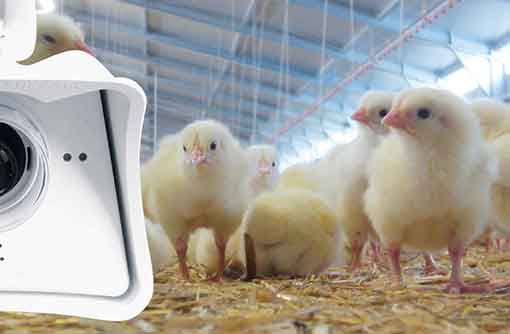Limiting environmental impact for poultry producers

Reducing environmental impacts and dealing with stress in birds were two of the topics up for discussion at a recent monogastric feed conference run by DSM. Caroline Stocks reports
All systems of egg production have scope to improve their performance when it comes to impacting on the environment, but organic producers can probably do more than most.
Addressing the DSM conference in Derbyshire, Adrian Williams, a researcher of food sustainability at Cranfield University, said some organic systems were impacting on the environment more than necessary.
Paying closer attention to finer details, particularly by benchmarking production data between producer groups, could help producers become more efficient while improving their sustainability, he said.
To demonstrate this, researchers from Cranfield University and other industry partners carried out lifecycle assessments on 1,000kg of marketable eggs, looking at the energy and protein required to produce them in caged, barn, free-range and organic systems.
From their calculations, scientists were able to work how much each of the systems impacted on the environment through factors such as feed waste, disease and mortality.
“In all systems, the production of feed dominates [the environmental footprint of the enterprises],” Dr Williams told delegates. “Organic systems take longer for the bird to grow, which requires them to eat more.
“Organic systems also require phenomenal land use compared to conventional ones (due to lower cereal yields), and the energy used to run them is much higher.”
Dr Williams said there were a number of things that both organic and conventional producers could look at to limit the environmental impact of their units, including reducing feed waste and improving feed conversion ratios.
“Improving bird health is also important,” he added. “There are losses and mortality in all systems, but working to reduce them will lower the environmental impact.”
For organic systems in particular, Dr Williams suggested that sourcing more locally-produced feed would help reduce the enterprises’ environmental footprint, although he admitted this was not always possible, given the insufficient level of organic grain production in the UK.
“The real improvements in organic systems will come from more attention to detail, such as using online water meters to look for signs of ill-health or identify issues with broken pipes.
“Getting producers to benchmark and work with producer groups to identify weak areas in a system will help – whether that’s thinking about building design or anything else,” he added.
“Benchmarking will help the bottom percentage of organic producers move up to the industry average, which will really help reduce the organic sector’s overall environmental impact.”
Vitamin E supplements could limit stress
Supplementing poultry diets with vitamin E should help limit birds’ reactions to stress and reduce bird mortality, particularly in young parent flocks, researchers have found.
Avian scientist Peter Surai of the Scottish Rural University College, said managing reserves of vitamin E – one of the major feed-derived antioxidants – should also maintain reproductive performance of birds.
Dr Surai told the conference that stress remained one of the major issues affecting the health of birds in modern poultry production.
Extremes in temperature or humidity, increased stocking densities, high levels of carbon dioxide and ammonia, disease and imbalanced diets could all lead to stress, which had serious consequences for bird productivity, particularly in chicks.
While stress affected immunity and reproduction in birds, newly-hatched chicks were especially susceptible to toxins known as free-radicals, which were created by stress, Dr Suari said.
But to tackle antioxidant levels in chicks, producers needed to tackle breeders’ diets first.
“Including high levels of antioxidants in the chicken diet during the first week of post-hatch is not effective, as chick stomachs are not able to adapt to it,” he said.
“Instead you need to increase levels of vitamin E in breeders, which is transferred to the egg and enriches the chick with antioxidants – thus helping them deal with stress.”
Dr Surai said supplementing breeder diets with 100ppm of vitamin E should be sufficient to maintain reproductive performance, while the amount could be increased in stressful situations to limit their impact on birds.
“Chickens don’t have big reserves of vitamin E, so you need to manage it every day,” he added.
“We know birds must be protected from the effects of stress, and doing it via the diet with vitamin E is an obvious step to increase the adaptability of animals.”
